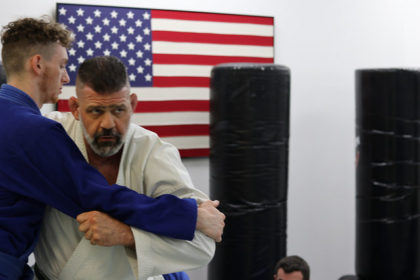
Mr. Vizzo and I were discussing an acquaintance we share from decades ago. He’s an accomplished sportsman on the world stage and a gold-medal Olympian, among other achievements.
But I’ve begun to notice that recently, his social media posts really diminish what’s going on in his sport. He writes things like, “Yeah, these guys now are OK, but in my day we were tougher!”
Does what he seemed to be holding onto have validity? Maybe. Perhaps it was more difficult back then, or it could be that guys actually were tougher.
But to me, it seems as though he can’t let go of the past. He’s comparing and contrasting, still checking to see if his measures are accurate.
In our conversation about this, Mr. Vizzo said that most people forget that they must leave something better than the way they found it.
On one level, he meant that a common arc to achievement goes something like this: we do our thing, achieve a certain level of status, and reach our peak. But after that—when we “age out” of it or are otherwise unable to participate—we grow resentful.
We become unhappy for others when they achieve success. That’s a problem!
There is, however, another way of managing your transition into a more mature stage of practice. That’s by finding opportunities to make the world better than how you found it.
And this, I believe, was Mr. Vizzio’s point.
For instance, cleaning up after yourself even if the place wasn’t clean before you. If someone in the dojo changing room has left items on the floor, your picking them up and placing them where they belong demonstrates leaving “goodness” behind you.
That’s a simple way to leave something better than you found it.
We can take it further than that. On a deeper level, this sort of transition from one stage of life to another asks us to think more broadly about how we live. If we’re really looking at how to leave this world a better place than when we found it, then at some poitn we have to come to terms with our true reason for being.
After all, the biggest transition we face isn’t out of our career or an activity or a sport; it’s out of life itself. I struggle with the notion regarding the transition called death or passing on.
So, I ask myself, “Do I matter? Does my existence register? What impact will I have had on the world?” And I believe the answer is “by making the world a better place.”
The catch is that we must be connected to something bigger, something grander than ourselves, in order for our true purpose to matter.
All of us are a “benefit” to the world. We are all essentially united to the one, universal source of energy. So everything we do makes a difference. The work is to decide from moment to moment what that difference will be, and how closely we will hew to our principles and values.
If we’re too removed from that idea, we get into comparing and contrasting. We shrink. Our lives become about pennies, little stitches, tiny drops of water. So instead, we must expand, think bigger.
And then we have a chance to find our way to making the world a better place.
– Gene Dunn & Foundation of Love
For more about our larger project of cooperative Jiu-Jitsu and martial arts training, please visit the
Brooklyn Brazilian Jiu-Jitsu (Brooklyn BJJ) website here.